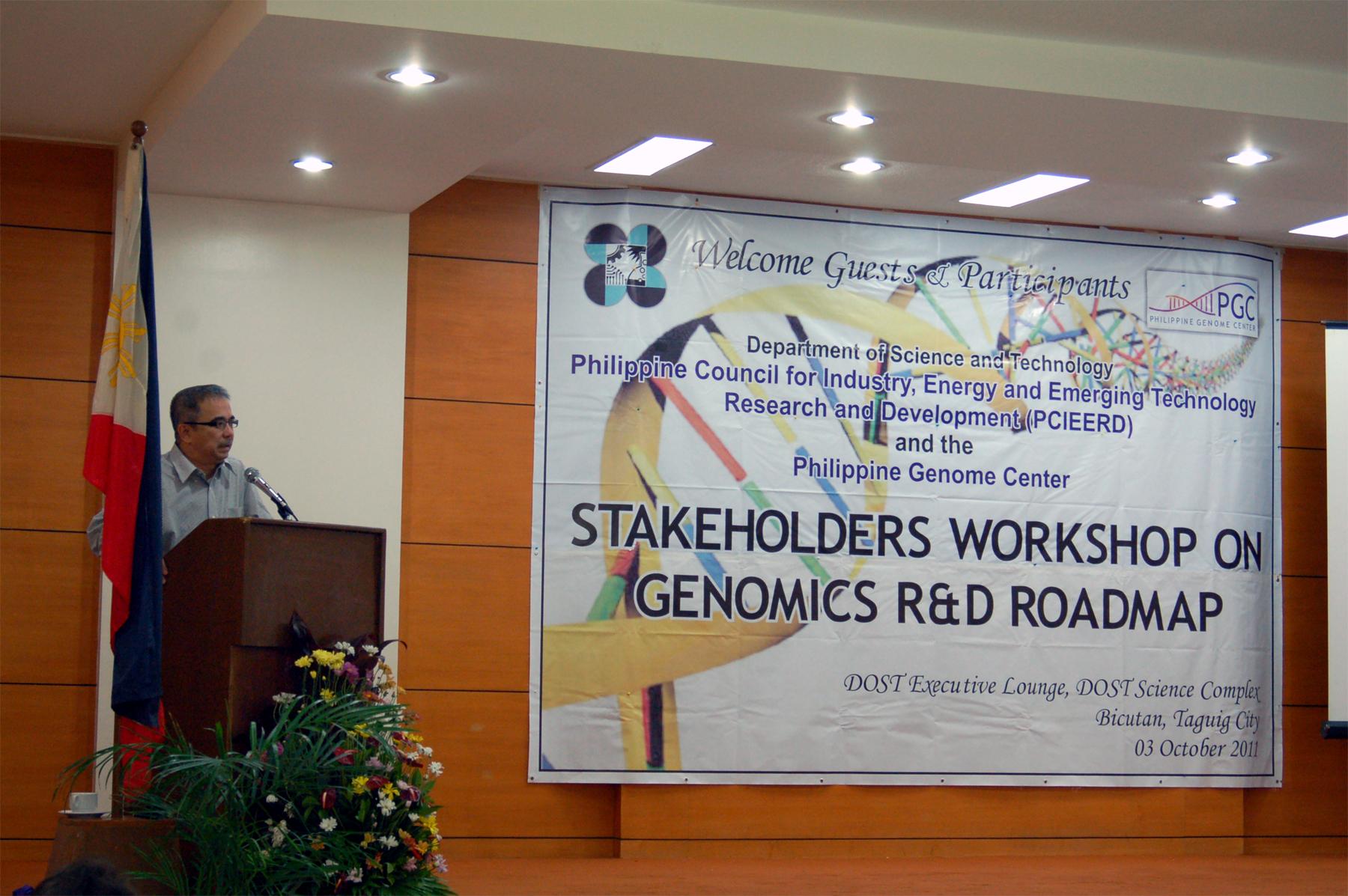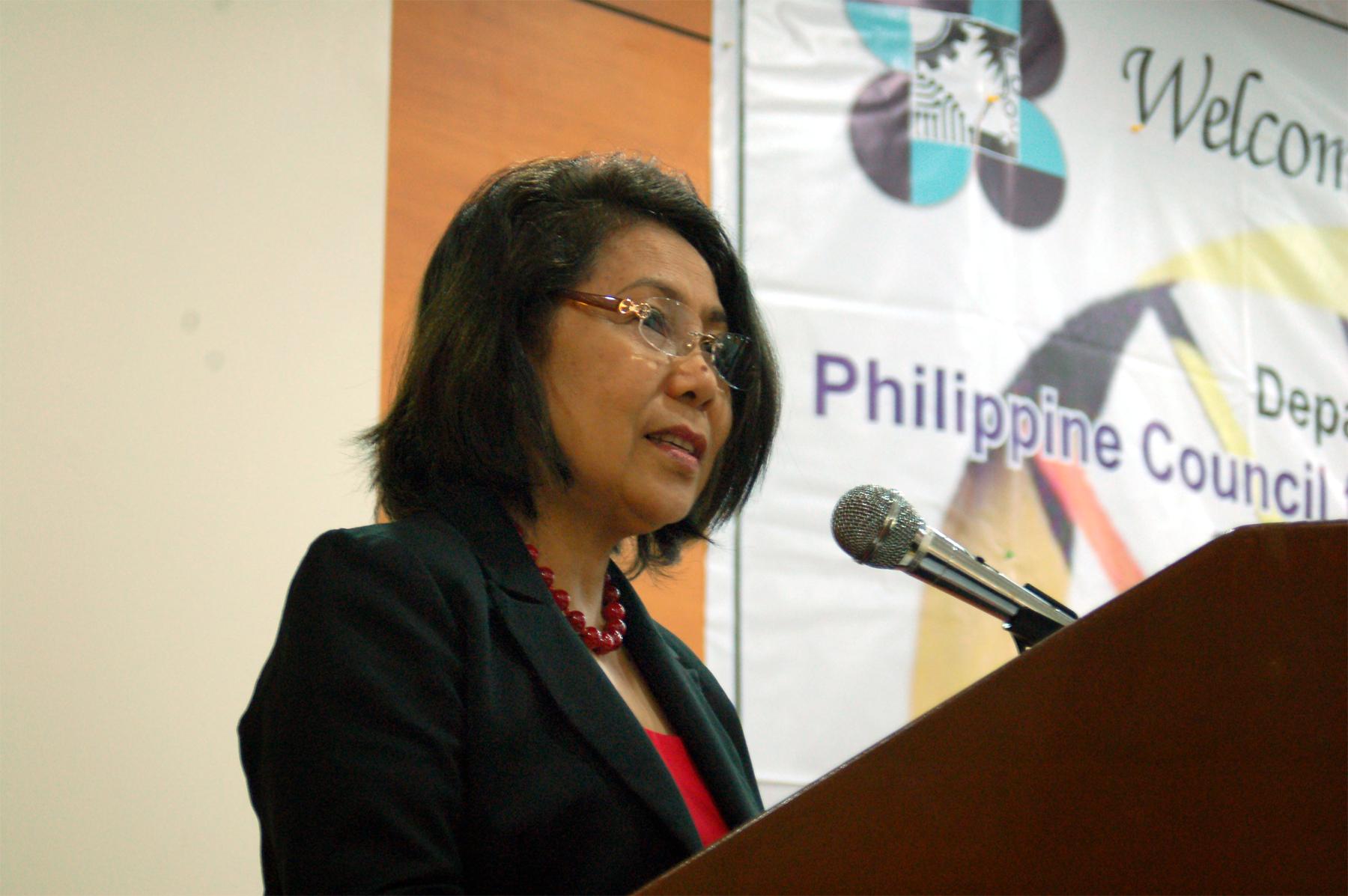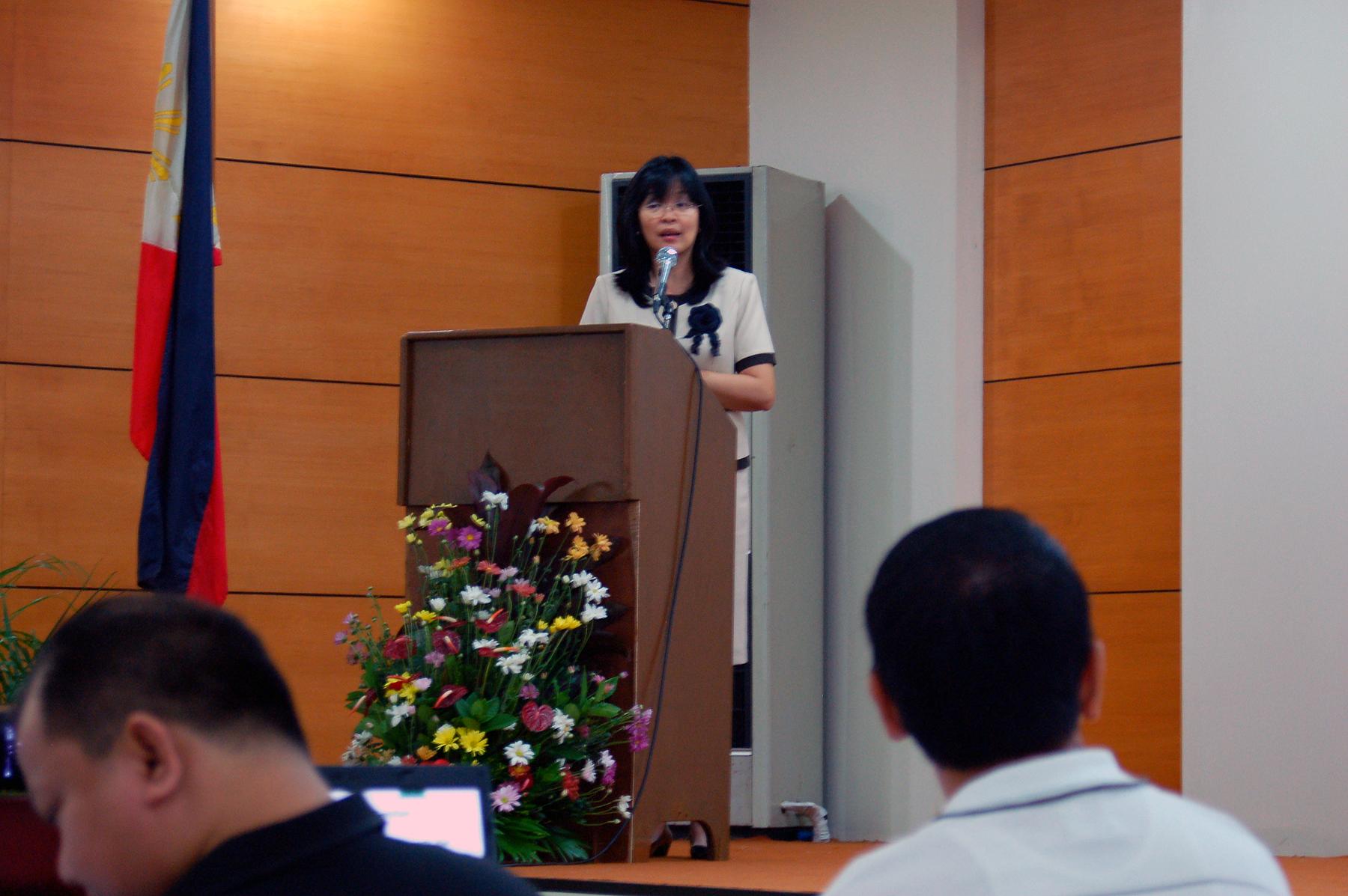If all goes according to plan, foods specifically designed for cancer and diabetes patients will be available to the public by 2014, this is according to researchers in genetics and molecular biology convened by the Department of Science and Technology (DOST) in the Stakeholders Workshop on Genomics Research and Development Roadmap held last October 3, 2011.
Genomics is one of the research priorities identified by the DOST. According to Science and Technology Secretary Mario G. Montejo, genomics research will be particularly helpful in the country's battle with various diseases such as dengue, diabetes, cancers, chronic lower respiratory and cardiovascular diseases.
Genomics is a transformational technology, Sec. Montejo said during the workshop organized by the DOST's Philippine Council for Industry, Energy and Emerging Technology Research and Development (PCIEERD) and held at the DOST in Bicutan, Taguig City. Through genetics research, we would be able to understand and develop cure for lifestyle diseases that dominate the leading causes of deaths in the Philippines.
Designer foods customized for a specific individual are among the tangible outputs listed in the country's preliminary genomics roadmap. Other target outputs are diagnostic kits for dengue and other diseases, drought-resistant eggplants, sexual assault investigation kits, national criminal DNA database and high-performance bio-informatics facility.
Once finalized, the Philippines Genomics Roadmap for 2012 to 2018 will help guide local scientists and researchers on what areas to pursue in genomics research. It identifies specific outputs of genomics research for health, nutrition, forensic, ethnicity, nutrigenomics, metagenomics, agriculture and biodiversity.
Genomics R&D program
Sec. Montejo explained that the roadmap would be part of the DOST's genomics research and development (R&D) program. The research program aims to foster the growth of the biotechnology and pharmaceutical industries, to enhance R&D capabilities of academic institutions and public sector research, and to promote understanding of disease mechanisms, crop improvement, food quality and biodiversity for drug discovery and bio-energy, Sec. Montejo said. It will also provide support to the Philippine Genome Center to become a world-class center in genome research.
Dr. Carmencita David-Padilla, Executive Director of the Philippine Genome Center, explained that genomics is the study of an organism's complete set of DNA. It looks at how the entire genes interact with one another and how it influences an organism's environment and behavior, she said during her talk on genomics R&D and its potential applications in the country.
Dr. Amelia P. Guevara, Executive Director of DOST-PCIEERD, noted that genomics will be used as a technological platform to revolutionize R&D in health; nutrition; Filipino ethnicity; agriculture, fisheries and livestock; biodiversity for drug discovery, bio-energy utilization and conservation; and forensics.
DOST-PCIEERD is the lead agency for the planning, promotion and management of scientific and technological research for the industry, energy and emerging technology sectors. The Council has identified institution and capacity building for genomics research as one of its priorities under the emerging technology sector.
On the other hand, Dr. William G. Padolina, former DOST Secretary and current Deputy Director General of International Rice Research Institute, stressed the need for rapid high throughput tools in genomics. High throughput tools refer to genetic tools that enable millions of genetic screening tests to be conducted at a single time. These tools will allow us to integrate information to characterize, manipulate and model entire genomes and metabolic pathways, he said. (Dr. Virginia G. Novenario-Enriquez and Margarette T. Maceda, PCIEERD-RITTD)

Through genetics research, we would be able to understand and develop cure for lifestyle diseases that dominate the leading causes of deaths in the Philippines,†said DOST Secretary Mario G. Montejo.

Dr. Amelia P. Guevara, Executive Director of DOST-PCIEERD, said that genomics would be used as a technological platform to revolutionize research and development.Â

Genomics is the study of an organism's complete set of DNA. It looks at how the entire genes interact with one another and how it influences an organism's environment and behavior, said Dr. Carmencita David-Padilla.




